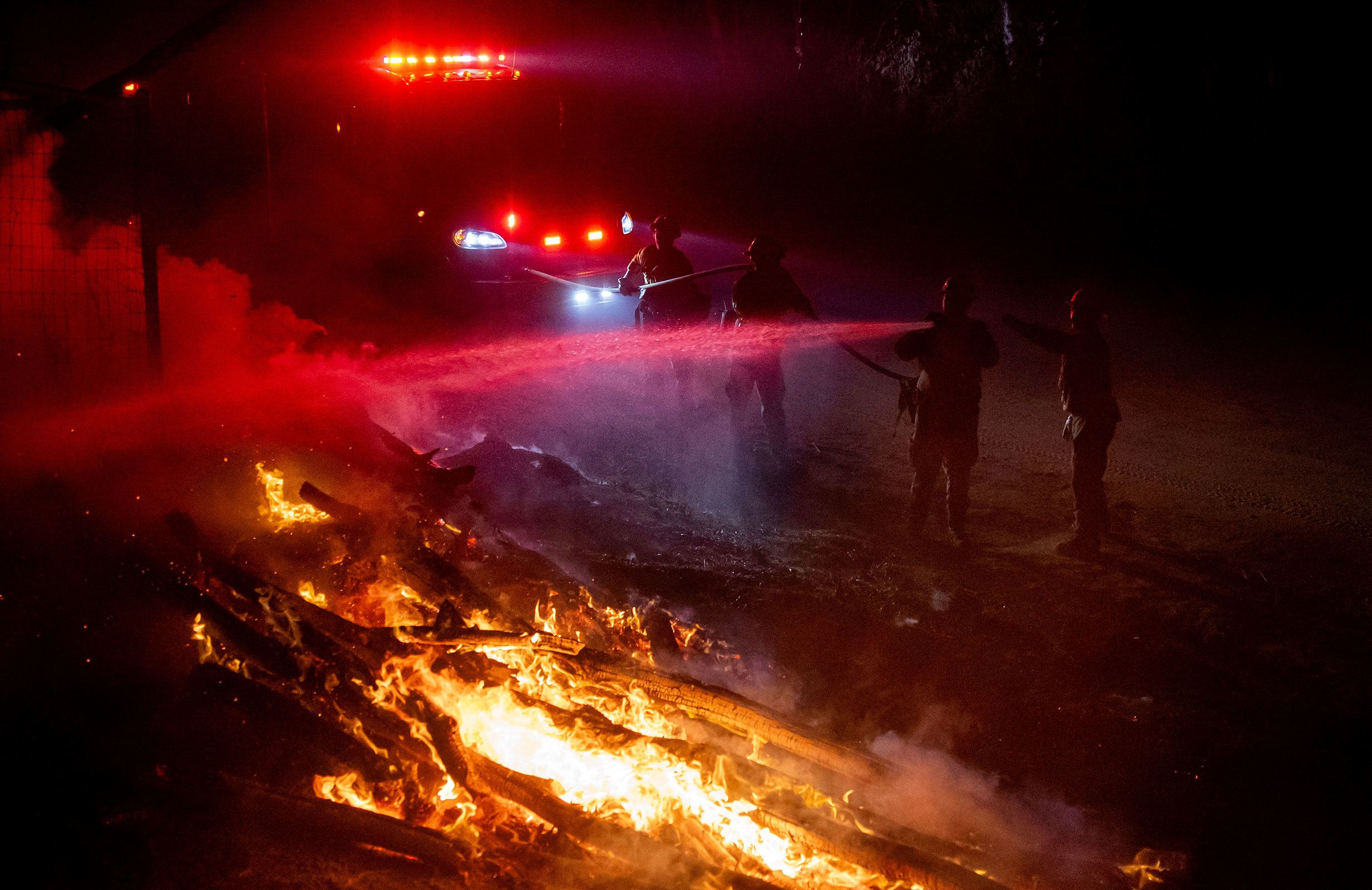CNN
—
A vegetation fire in California’s Riverside County exploded in size as it was stoked by hot and dry Santa Ana winds, scorching multiple structures and forcing thousands of people to flee their homes.
When the fire – dubbed the Highland Fire – was first reported Monday at 12:37 p.m. PDT, near Aguanga, California, it was only 14 acres in size. Just seven hours later, the fire had grown to more than 1,200 acres, according to Cal Fire.
As of early Tuesday morning, the Highland Fire had charred 2,200 acres and was 0% contained, Cal Fire reported. It has destroyed at least three structures and damaged six others.
Evacuation orders were first issued Monday afternoon but were quickly expanded Monday evening and then again on Tuesday morning.
More than 1,100 homes have been evacuated in the area of the fire, affecting approximately 4,000 people, Riverside Fire spokesperson Maggie Cline De La Rosa told CNN. Another 1,700 people have been warned that they might also have to evacuate.
The evacuation orders and warnings – the latter of which are meant to warn residents to prepare for an evacuation order – are still active.
See a map of the evacuations here
Sustained wind speeds of 20 to 25 mph with gusts up to 35 mph are forecast in and around the area of the Highland Fire on Tuesday, according to the National Weather Service. These winds will continue to challenge firefighters and could further increase the size of the fire.
At least 310 firefighters from 49 engine companies were responding to the fire as of Tuesday morning, according to Cal Fire.
The cause of the fire is under investigation.
While its origin remains unclear, it is not a mystery how the Highland Fire was able to grow so quickly. Extremely dry air and strong winds in California on Monday and Tuesday combined to fuel rapid fire spread.
Relative humidity – a measure of how much moisture is in the air – was very low on Monday: around 5% to 15%, according to a forecast discussion from the National Weather Service in San Diego. When relative humidity decreases, fires are easily triggered and sustained.
Once fires form, gusty winds cause these fires to spread quickly and even blow their embers into the distance to start additional fires. Winds gusted over 50 mph near the fire, driven by a Santa Ana event which began over the weekend across parts of Southern California.
Santa Ana winds, nicknamed for the Southern California mountain range, are seasonal hot and dry winds that develop when air flows from east to west — something it’s prone to do there in the fall and winter.
As air travels from the high elevation of the mountains down to sea level, it is compressed by higher pressure, which heats it up and dries it out. Santa Ana winds can become quite strong as they rush down mountains, enhanced by canyons and passes that act as natural wind tunnels. The winds can dry out vegetation, making it more fire prone, and fan the flames of existing fires.
California wildfires have been pacing well-below average so far this year, with over 315,000 acres burned as of October 31. Typically, fires have scorched 1.5 million acres of California by this point in the year, according to CAL FIRE.
CNN’s Cheri Mossburg contributed to this story
